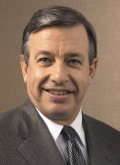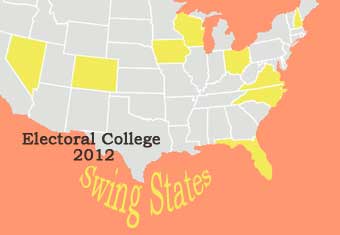NASCAR Internship Puts Jenna Mazza L’26 on the Right Track to Career in Sports Law
A lifelong NASCAR fan, Jenna Mazza L’26 has a photo of herself at age 4 standing with legendary driver Jimmie Johnson’s diecast car. So, imagine her elation when she had the opportunity to take a photograph with Johnson himself this…


 Whether in a perceived blue state, red state or swing state, every vote matters in the U.S. presidential election, but not for the reason you might think.
Whether in a perceived blue state, red state or swing state, every vote matters in the U.S. presidential election, but not for the reason you might think.